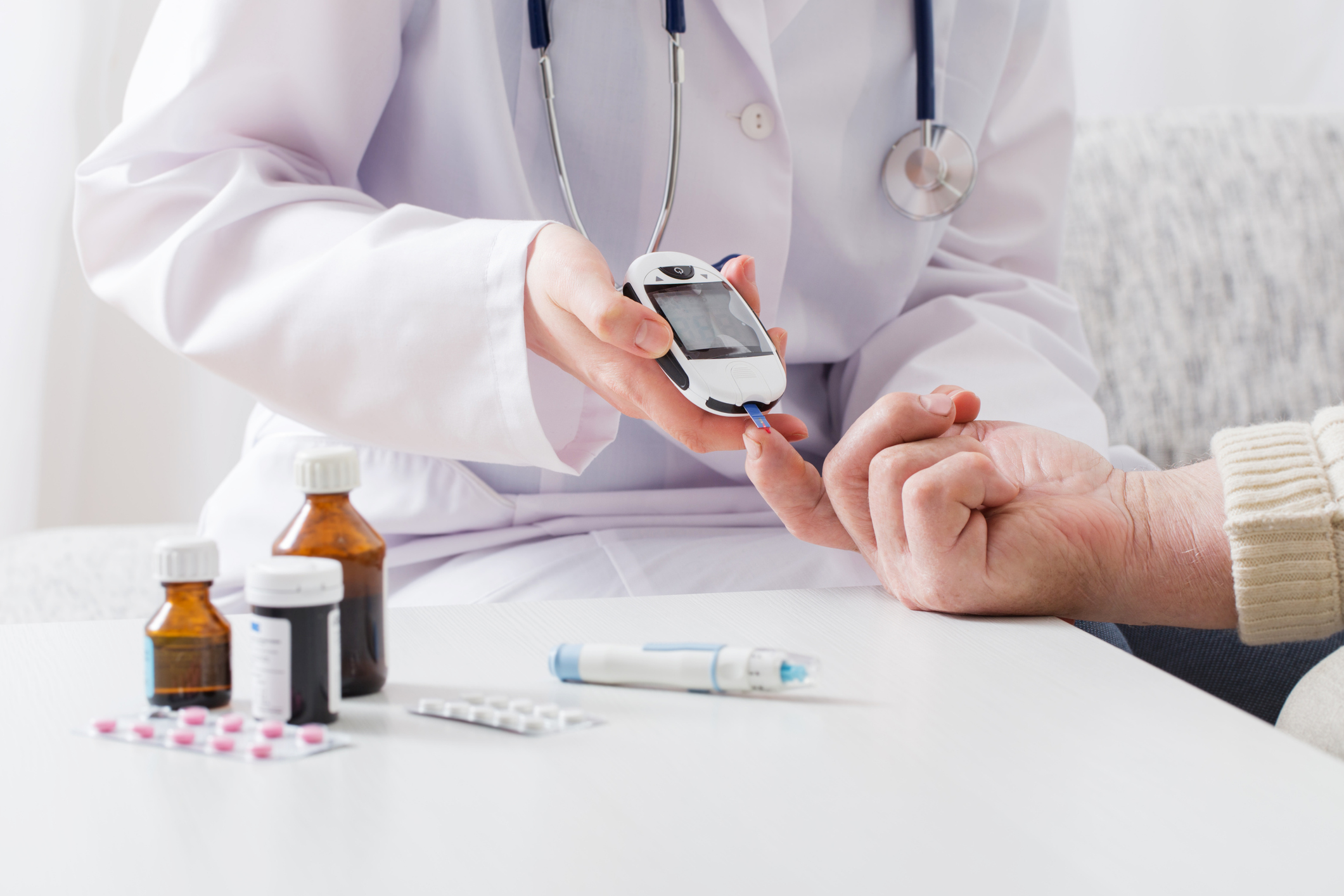Following infection with even a mild COVID-19 case, millions of people suffer from long-term side effects including brain fog, fatigue, and an increased risk for heart complications. New research has also found that people who have recovered from even a mild COVID infection were more likely to develop diabetes within a year. The risk increases for patients who suffered a serious infection that led to a stay in hospital or treatment in intensive care.
According to a recent NPR report, a new study found that people who had COVID-19 were about 40 percent more likely to develop diabetes within a year after recovery compared with a control group, even without prior risk factors for the disease. The study, published in The Lancet Diabetes & Endocrinology, analyzed data from more than 180,000 patients from the U.S. Department of Veteran Affairs.
The research paper shows that between 1 and 2 percent of people who were infected with COVID will develop diabetes. While that number may seem small, with nearly 80 million known people to have had COVID, the increase translates into between 800,000 and 1.6 million more people developing diabetes who would not have otherwise.
The research highlights the growing need for patients and their doctors to pay close attention to the long-term effects of Coronavirus infection and screen patients who have been sick with COVID for diabetes and other known complications including heart and kidney problems and chronic fatigue. Patients who have had COVID should pay close attention to changes in their health and their body and talk with their doctors about any new or continuing symptoms.
Signs of developing type 2 diabetes can include increased thirst, frequent urination, major weight fluctuations, and blurry vision. Seek medical attention promptly if you experience any of these symptoms.






Add Your Voice
0 Comments
Join the Discussion